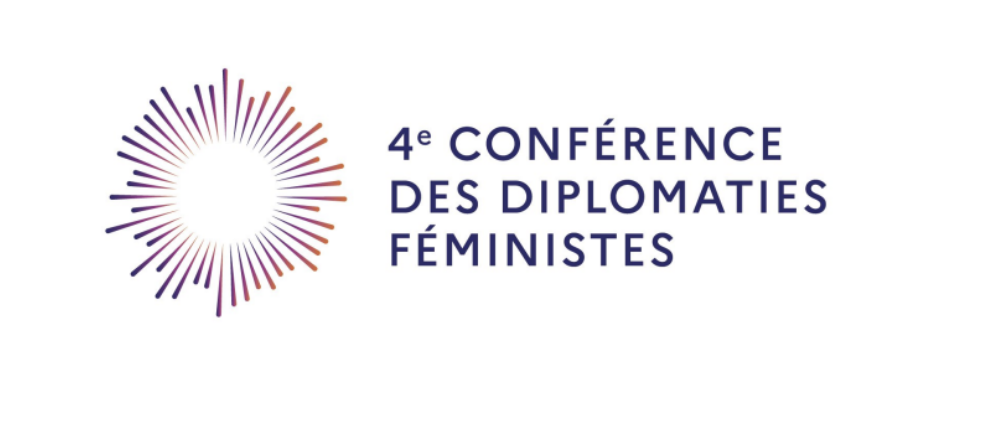
4th Ministerial Conference on Feminist Foreign Policies
Roundtable: Ensuring women’s participation in international peace and security
Towards an International Women, Peace and Security Network
Date and venue:
Wednesday 22 nd October, 16.15pm-17.15pm
Ministerial Convention Center of the Ministry for Europe and Foreign Affairs
(CCM – 27, rue de la Convention)
With Ms Isabelle Rome, Ambassador for Human Rights; Ms Nicole AMELINE, international expert, member of the Advisory Committee of the Human Rights Council; Ms Pramila Patten, Special Representative of the United Nations Secretary-General on Sexual Violence in Conflict AND Caitlin Kraft-Buchman, founder of Women at the Table; Maria Noel Leoni Zardo, Deputy Executive Chair of GQUAL; Susanna Malcorra, President and co-founder of GWL Voices.
Context
In 2025, more than 600 million women are living in conflict situations – a 50% increase in 10 years. Conflict and instability exacerbate pre-existing patterns of discrimination against women and girls, exposing them to increased risks of rights violations. Women and girls are the main victims of sexual violence, particularly as a tactic of war, and these acts are becoming increasingly common. Over the past 25 years, only 5% of mediators and 8% of negotiators in peace negotiations have been women. Yet consolidated studies show that the participation of women at the negotiating table increases the likelihood of lasting peace by 35%.
The full, equal and meaningful participation of women in conflict prevention, mediation and resolution helps to reduce human rights violations and conflict-related sexual violence. It is essential for establishing the legitimacy of decisions taken, building peaceful societies and progressing towards the implementation of the 2030 Agenda goals. The CEDAW Convention states in its preamble that ‘the full development of a country, the well-being of the world and the cause of peace require the maximum participation of women, on equal terms with men, in all fields.’ To strengthen the protection and promotion of women’s and girls’; rights in crisis and conflict situations, the United Nations has put in place several tools. Through the resolutions of the ‘Women, Peace and Security’ Agenda, the Security Council has established a dedicated international framework since 2000. General Recommendations 30 and 40 of the Committee on the Elimination of Discrimination against Women, concerning the protection of women in conflicts and the equal participation of women in decision-making processes, for example, make gender parity a vector of stability, peace and conflict prevention for future generations.
In 2025, the 30th anniversary of the Beijing Declaration and Platform for Action, the 25th anniversary of the adoption of Resolution 1325 and the 4th Feminist Foreign Policy Conference in Paris provide a unique opportunity to secure and enhance collective commitments to ensure that women have equal and inclusive representation in political life and in peace and security efforts around the world.
Round table:
The CEDAW Convention and all multilateral commitments, including Resolution 1325, have established a direct correlation between the effective representation of women in decision- making systems and peacebuilding.
General Recommendation 40 of the CEDAW Committee (GR40) emphasises the urgent need for strong and concrete support for the international community’s commitment through the implementation of innovative solutions that strengthen expertise, skill aggregation and evaluation. The round table is designed as an interactive exercise to pre-configure a Network of International Experts on Women, Peace and Security – an initiative led by Nicole Ameline, RG40 Rapporteur, with a view to concretely measuring and promoting the decisive impact of women’s equal and effective participation in decision-making systems on peace and its essential components, including social well-being, inclusion, security and the resilience of societies. This network would be intended as a universal, interdisciplinary tool for monitoring and evaluating the equal participation of women in peace and decision-making processes, based on the most effective digital approaches. This round table will enable participants to work on the objectives, resources and functioning of the future network and its interdisciplinary dimension, and to bring out personalities and identify opportunities for cooperation.
Discussions will aim to:
(i) Identify the thematic priorities of the future Network (collection and processing of digital resource data/training/reports/recommendations/ evaluations)
(ii) Discuss the profiles, roles and mandates of members (proposals for individuals, academic networks to be involved, etc.)
(iii) Assess needs in terms of governance/funding/public and private partnerships. The round table is intended for approximately seventy people from international organisations (UN Women, OHCHR, UNDP, UNESCO, CEDAW, AU, EU, OSCE, UNU, etc.), academics/researchers (CFFP, LSE Centre for WPS, Geneva Centre for Security Policy, Humanitarian Dialogue, etc.), civil society actors, including younger generations (WILPF, WOMEN AT THE TABLE, GQUAL, GENEVA ACADEMY, Inclusive Security, MADRE, ICAN, etc.) and government representatives.
Last modified: October 13, 2025
